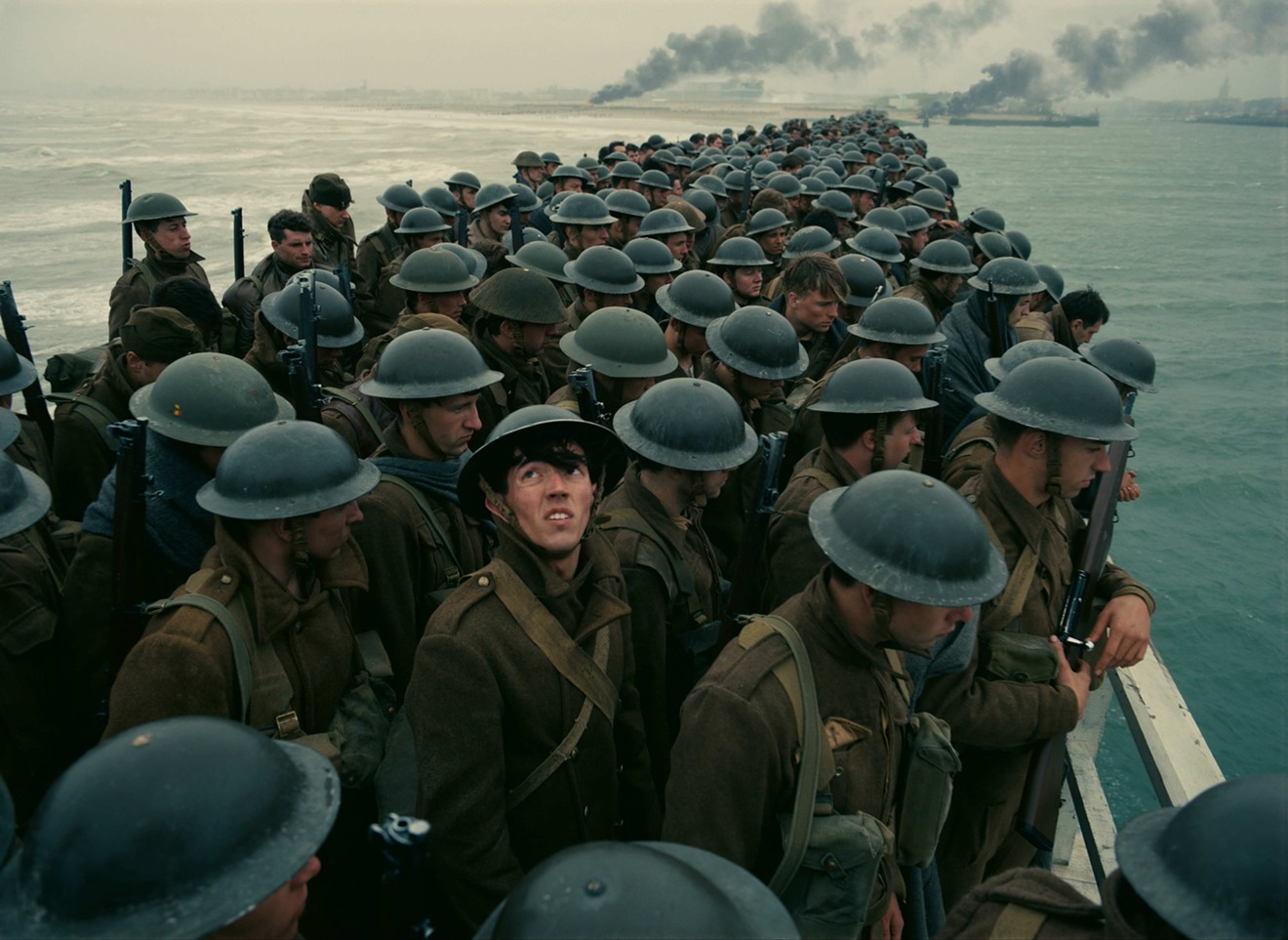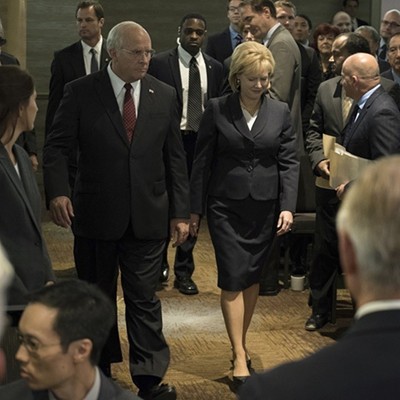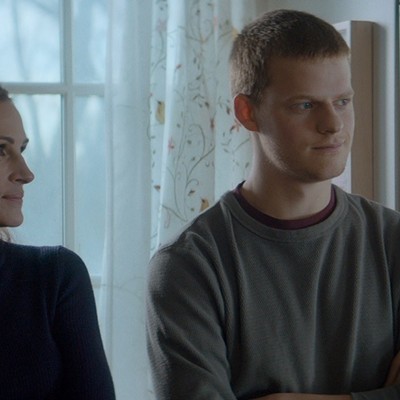The nerve-racking war thriller Dunkirk is the movie Christopher Nolan’s entire career has been building up to, in ways that even he may not have realized. He’s taken the British Expeditionary Force’s 1940 evacuation from France, early in World War II — a moment of heroism-in-defeat that has become an integral part of Britain’s vision of itself — and turned it into a nesting doll of increasingly breathless ticking-clock narratives. Some filmgoers might be expecting a sprawling, grandiose war epic. Instead, Nolan gives us one of the leanest, most ingenious studio films in quite a while: an intercutting montage of competing timelines that expand and contract and collide in ways both inevitable and surprising. And somehow, it’s also uncharacteristically intimate.
Nolan doesn’t get enough credit for the experimentalism of his filmmaking. His final Batman picture, The Dark Knight Rises (2012), had extended passages that interlaced suspense set pieces with time-condensing montages, two modes that require totally different kinds of pacing; that the director would cross streams so flamboyantly in a superhero flick indicated his willingness to push stylistic boundaries, not to mention the power he wielded as a producer. He had attempted something even bolder in his previous film, Inception (2010), in which multiple layers of dream realities, each playing out at a different speed, interacted with one another in strange ways.
Dunkirk takes those innovations further. It tells the story of the evacuation by cutting among three perspectives, each with its own specific time frame: one week following a British soldier (Fionn Whitehead) on the beach at Dunkirk, as he tries to find a way off this huge, doomed stretch of land; 24 hours on the small wooden yacht Moonstone, manned by Mr. Dawson (Mark Rylance) and two teenagers as they head across the roaring English Channel to aid in the rescue effort on the other side; and one hour in the cockpit with RAF Spitfire pilot Farrier (Tom Hardy, his face totally covered, once again singing solely with his eyes) as he battles the German Luftwaffe bombing the stranded army below.
As the film makes clear, the beach at Dunkirk was uniquely treacherous. Large ships couldn’t approach the shallow waters; to board any boats, soldiers had to crowd onto a long, narrow pier, making them sitting ducks for enemy planes and bombs. To make matters worse, on a clear day you could practically see England; some men killed themselves simply by walking into the water, thinking they could swim across.
It’s the kind of irony that clearly inspires Nolan, whose movies are often fugues built around opposing variations of an idea. In The Dark Knight Rises, hope was used as a weapon; in his sci-fi epic, Interstellar (2014), humanity’s own survival instinct came very close to killing off the species. Now, in Dunkirk, the closeness of home resonates: Here are more than 300,000 soldiers out in the open, in plain sight of the whole world, just a handful of miles away from safety — with almost no way of getting there.
The film’s setup may sound confusing, but onscreen titles inform us of the film’s variable timeframes early on. Still, it’s a little shocking when a character from one storyline shows up in another, at an earlier point in his arc — which in turn sheds additional light on his psychology. Nolan and editor Lee Smith juggle these timelines with verve but also with compassion. As he did with his bass-ackwards thriller, Memento (2000), in which the reverse-narrative replicated the protagonist’s amnesia, the director has found a structure that enhances the film’s subjectivity. Spending seven days on the beach brings home the agony of the soldiers’ wait. Spending a full day on the boat reflects the surprising difficulty of getting from England to Dunkirk. The hour on the Spitfire relays the urgency of the vessel’s dwindling fuel and the daunting task of a handful of planes defending hundreds of thousands of soldiers. And as these stories converge, odd things happen. About a third of the way through one major set piece, we realize we’re watching the scene out of order, that we ourselves have become consumed by the chaos of the moment. Meanwhile, Hoyte van Hoytema’s ridiculously immersive IMAX cinematography ensures that we’re never pulled out of the experience; it’s easy to be an attentive viewer when what’s onscreen is so striking and beautiful.
Nolan fully embraces the power of visual storytelling in Dunkirk. That requires a certain trust in the viewer. He's been knocked by some in the past for deflating his drama with exposition, spelling things out too much. He may have taken these criticisms to heart: The amount of dialogue here could probably fit on a couple of pages, and much of it is either functional or macabre. (“The tide’s turning now.” “How can you tell?” “The bodies are coming back.”) Now, he uses perspective and keys in on small details and gestures to build tension and advance the plot.
He’s also learned the value of understatement: The death of one major player happens offscreen, and its discovery is heartbreakingly muted. In another scene, as a boat slams against a pier, a sole, distant scream suggests that a man has been crushed between the two. Nolan’s films are filled with haunted figures — flamboyantly, operatically haunted ones — but here, the brooding feels organic, quiet, part of the landscape, whether it’s Rylance’s soft-spoken, tenderhearted boat captain or Kenneth Branagh’s lonely Commander Bolton, forlornly standing on a breakwater as he oversees the critical aftermath of a monumental military humiliation.
Which brings us to Dunkirk’s most interesting trick. At first, I was a little peeved that the unseen enemy was never called out by name; nobody says the word Nazi in this movie, which seems like a misstep in our unexpectedly Nazi-laden times. But the film itself is a testament to the value of loss — to the idea that life, honor and triumph wait on the far side of failure. That was of course the gist of newly appointed Prime Minister Winston Churchill’s resounding speech delivered in the wake of the retreat. (“We shall fight on the beaches, we shall fight on the landing grounds, we shall fight in the fields and in the streets.”) In the end, Dunkirk suggests that how you handle the most deflating existential defeat may well be the very thing that saves you. We all kind of need to be reminded of that these days.
Support Us
Houston's independent source of
local news and culture
account
- Welcome,
Insider - Login
- My Account
- My Newsletters
- Contribute
- Contact Us
- Sign out

Nolan's Dunkirk, a triumph about defeat
Courtesy of Warner Bros.
[
{
"name": "Related Stories / Support Us Combo",
"component": "11591218",
"insertPoint": "4",
"requiredCountToDisplay": "4"
},{
"name": "Air - Billboard - Inline Content",
"component": "11591214",
"insertPoint": "2/3",
"requiredCountToDisplay": "7"
},{
"name": "R1 - Beta - Mobile Only",
"component": "12287027",
"insertPoint": "8",
"requiredCountToDisplay": "8"
},{
"name": "Air - MediumRectangle - Inline Content - Mobile Display Size 2",
"component": "11591215",
"insertPoint": "12",
"requiredCountToDisplay": "12"
},{
"name": "Air - MediumRectangle - Inline Content - Mobile Display Size 2",
"component": "11591215",
"insertPoint": "4th",
"startingPoint": "16",
"requiredCountToDisplay": "12"
}
,{
"name": "RevContent - In Article",
"component": "12527128",
"insertPoint": "3/5",
"requiredCountToDisplay": "5"
}
]
KEEP THE HOUSTON PRESS FREE...
Since we started the Houston Press, it has been defined as the free, independent voice of Houston, and we'd like to keep it that way. With local media under siege, it's more important than ever for us to rally support behind funding our local journalism. You can help by participating in our "I Support" program, allowing us to keep offering readers access to our incisive coverage of local news, food and culture with no paywalls.
Trending Film
- International Film Festival 2000
- It’s Sadly Kind of Perfect That New Season of GLOW Is Stolen by Marc Maron
- The Mysteries of Antonioni’s Blow-Up, a Half Century on
-
Sponsored Content From: [%sponsoredBy%]
[%title%]

Don't Miss Out
SIGN UP for the latest
news, free stuff and more!
Become a member to support the independent voice of Houston
and help keep the future of the Houston Press FREE
Use of this website constitutes acceptance of our
terms of use,
our cookies policy, and our
privacy policy
The Houston Press may earn a portion of sales from products & services purchased through links on our site from our
affiliate partners.
©2024
Houston Press, LP. All rights reserved.




